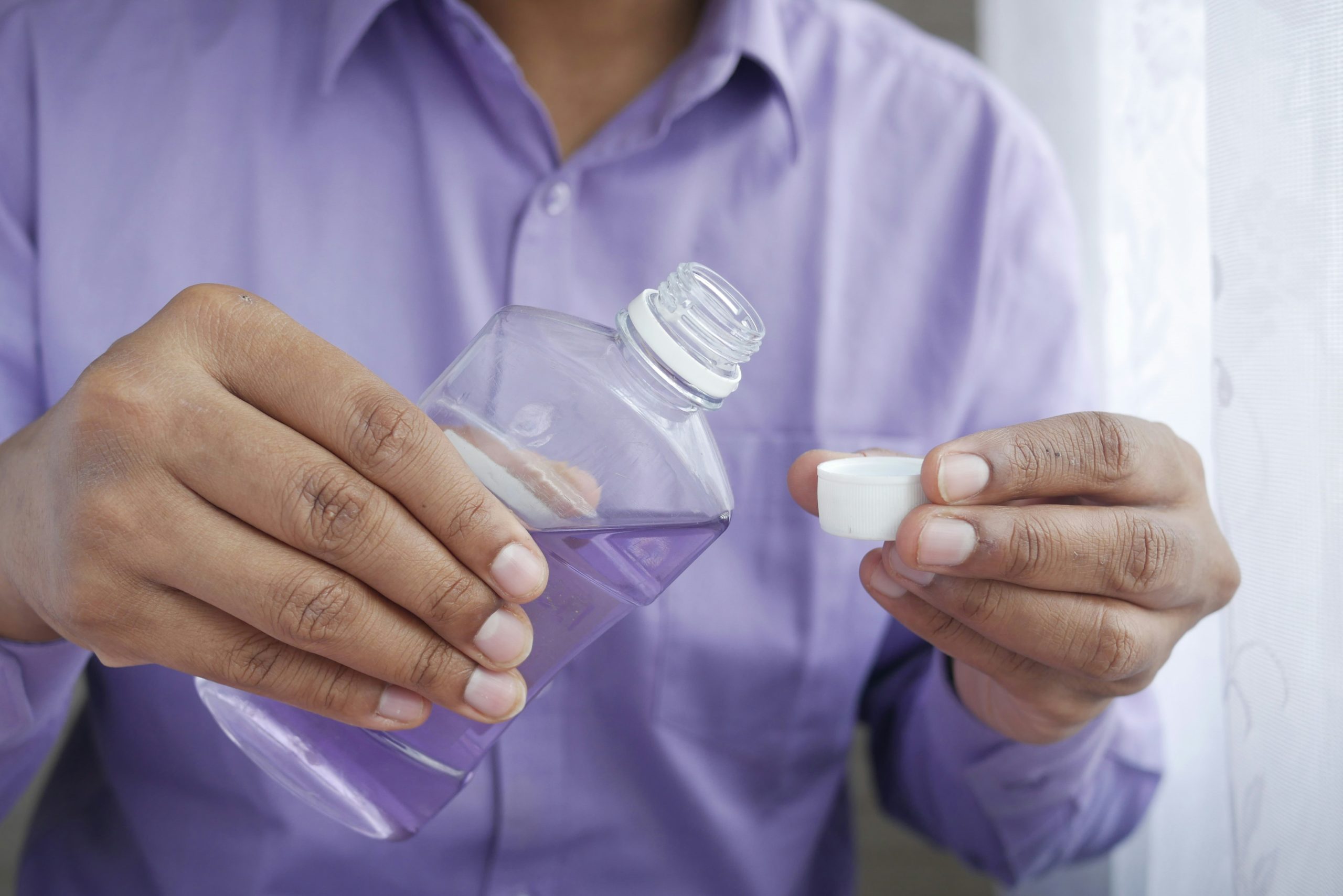A bright, healthy smile is not only aesthetically pleasing but also a sign of good oral health. While brushing and flossing are essential components of a proper oral hygiene routine, many people overlook the benefits of using mouthwash. Mouthwash, also known as mouth rinse or oral rinse, is a liquid solution designed to freshen breath, kill bacteria, and promote overall oral health.
In this comprehensive guide, we’ll explore the myriad benefits of using mouthwash as part of your daily oral care regimen. From combating bad breath to reducing plaque buildup and preventing gum disease, mouthwash offers a range of advantages that can help you achieve and maintain a sparkling smile.
Benefits of Using a Mouthwash
1. Freshens Breath
One of the most well-known benefits of using mouthwash is its ability to freshen breath. Mouthwash contains ingredients such as menthol, eucalyptol, and essential oils that help to mask odors and leave your breath smelling minty fresh.
Using mouthwash after brushing and flossing helps to eliminate bacteria and food particles that can linger in the mouth, reducing the likelihood of bad breath throughout the day. Using mouthwash into your oral hygiene routine can give you the confidence of knowing that your breath is clean and fresh.
2. Kills Bacteria
Mouthwash plays a crucial role in killing bacteria that can lead to tooth decay, gum disease, and other oral health issues. Many mouthwashes contain antibacterial ingredients such as chlorhexidine, cetylpyridinium chloride, or hydrogen peroxide, which help to kill harmful bacteria in the mouth.
Rinsing with mouthwash after brushing and flossing helps to reduce the number of bacteria present in the mouth, lowering the risk of cavities and gum inflammation. Regular use of mouthwash can help maintain a healthy balance of oral bacteria and promote overall oral health.
3. Reduces Plaque and Tartar
Plaque is a sticky film of bacteria that forms on the teeth and gums and can lead to tooth decay and gum disease if not removed regularly. Mouthwash can help reduce the buildup of plaque by reaching areas of the mouth that may be difficult to clean with a toothbrush or floss alone.
Many mouthwashes contain ingredients such as fluoride or antimicrobial agents that help to break down plaque and prevent it from hardening into tartar. By incorporating mouthwash into your oral hygiene routine, you can help keep plaque at bay and maintain a cleaner, healthier smile.
4. Prevents Gum Disease
Gum disease, also known as periodontal disease, is a common oral health condition characterized by inflammation of the gums and damage to the surrounding tissues. Left untreated, gum disease can lead to tooth loss and other serious complications.
Using mouthwash as part of a comprehensive oral hygiene routine can help prevent gum disease by killing bacteria and reducing plaque buildup along the gumline. Additionally, some mouthwashes contain ingredients that help to soothe inflamed gums and promote healing, further reducing the risk of gum disease.
5. Promotes Overall Oral Health
In addition to freshening breath, killing bacteria, reducing plaque, and preventing gum disease, mouthwash offers numerous other benefits for overall oral health. Mouthwash can help remineralize enamel, strengthen teeth, and protect against cavities.
Some mouthwashes also contain fluoride, which helps to strengthen tooth enamel and prevent tooth decay. By incorporating mouthwash into your daily oral care routine, you can take proactive steps to protect your teeth and gums and maintain a healthy smile for years to come.
Conclusion
Using mouthwash as part of your daily oral hygiene routine offers a range of benefits that can help you achieve and maintain optimal oral health. From freshening breath to killing bacteria, reducing plaque buildup, and preventing gum disease, mouthwash plays a crucial role in promoting a healthy smile.
Frequently Asked Questions (FAQs)
1. How often should I use mouthwash?
For most people, using mouthwash twice daily, after brushing and flossing, is sufficient to reap the benefits of this oral hygiene product. However, it’s essential to follow the instructions on the product label and consult with your dentist if you have any specific concerns or conditions that may require a different usage frequency.
2. Can mouthwash replace brushing and flossing?
While mouthwash offers several benefits for oral health, it is not a substitute for brushing and flossing. Brushing removes plaque and food particles from the surfaces of the teeth while flossing removes debris from between the teeth and along the gumline. Mouthwash complements brushing and flossing by providing additional antibacterial protection and freshening breath.
3. Are there any side effects of using mouthwash?
Some people may experience mild side effects from using mouthwash, such as temporary irritation or sensitivity. These side effects are usually mild and resolve on their own with continued use. However, if you experience persistent irritation or other adverse reactions, discontinue use of the mouthwash and consult with your dentist or healthcare provider.
4. Are there different types of mouthwash?
Yes, there are several different types of mouthwash available, each formulated to address specific oral health concerns. Common types of mouthwash include fluoride mouthwash for cavity prevention, antibacterial mouthwash for killing bacteria and preventing gum disease, and cosmetic mouthwash for freshening breath. Some mouthwashes are also designed for sensitive teeth or specific conditions such as dry mouth.
5. Can children use mouthwash?
Children can use mouthwash under the guidance of a parent or guardian and with the approval of a dentist. It’s essential to choose a child-friendly mouthwash that is formulated specifically for their age group and to supervise their use to ensure they do not swallow the mouthwash. Mouthwash may not be appropriate for very young children who are unable to rinse and spit effectively.



